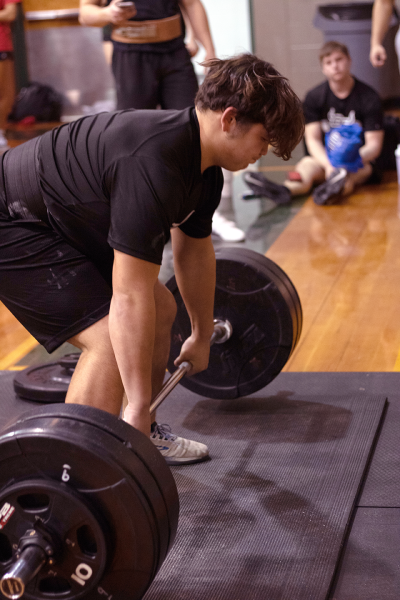Work, Work, Work
Many students at GEHS spend after-school hours working. While the money is nice, being able to balance school- work versus actual work is argued to be more stressful than the job itself. Getting home late, not completing an assignment or not getting enough sleep are just some of the many challenging aspects of keeping a job during the school year. Finding a middle ground and staying there is one struggle over which most working students stress.
Senior Cassie Lee—an employee at Arby’s—often has to close, which can go as late as 12:30 a.m. Lee balances the stress of working and school work by staying up late until the job is done.
“If I close, then [I stay up past midnight] all the time,” Lee said. “I’ll get home anywhere from 8:00 p.m. to 12:30 a.m.”
Getting home after a busy night at work and then being expected to finish homework for three or four different classes is believed to test the patience and focus of high school students. Keeping the focus and energy it takes to get an assignment done on time can be difficult to maintain when all the body wants to do is sleep.
AP or Honors classes are argued to be the most difficult classes to keep up with because of the loaded schedule. For some students, the hardest part of keeping up with their heaviest classes is the fact that work takes up so much time that could be used to make important deadlines.
“I take days off that I have [AP] classes,” junior Taylor Fitzpatrick said. “I work at Quik Trip, so I get home around 10:30 p.m. on school nights.”
Everyone has their own methods of how to balance both areas of work though. Sacrificing personal down-time is necessary to get the work done if falling behind is becoming a trend.
“Since I don’t work during the school week, I work 16 hours [at Subway] between Saturday and Sunday,” senior Nathan Bennett said. “[Therefore,] I don’t have time to hang out with friends.”
According to senior Julia Southern, cramming to meet deadlines eats up valuable personal time, but sometimes it is a sacrifice that has to be made in order to keep priorities in line.
“[I have learned to balance school work with actual work] with time management,” Southern said. “I make lists a lot.”
For Southern, getting home around 8:30 p.m. every night from her job at Trails West Ace Hardware is normal, so there is still plenty of time for homework and a good night’s sleep. Going from working 40 hours a week during the summer to a mere 16 hours a week during the school year, Southern said she keeps all of her work straight by working on it in the slow hours of her shifts at work.
Keeping grades up and keeping a job are just some of the pressures of today’s teens. The common trend among students interviewed showed that keeping up with school work and a job is the most challenging part of working during the school year. According to Lee, balancing the two can be a concern that high school students across the globe have to learn to cope with.











